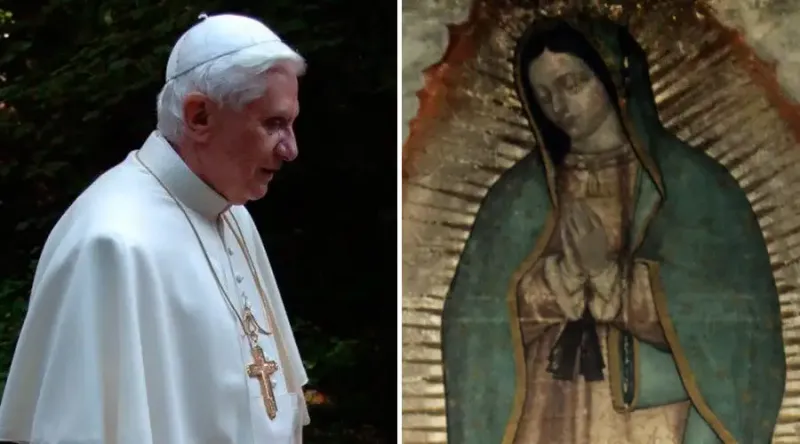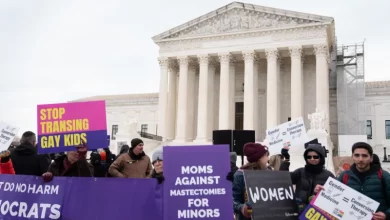Catholic bishops phase out migration programs as federal partnership ends
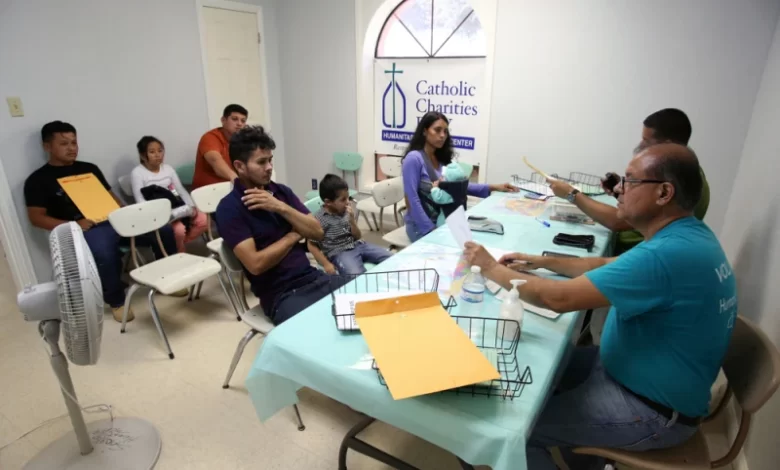
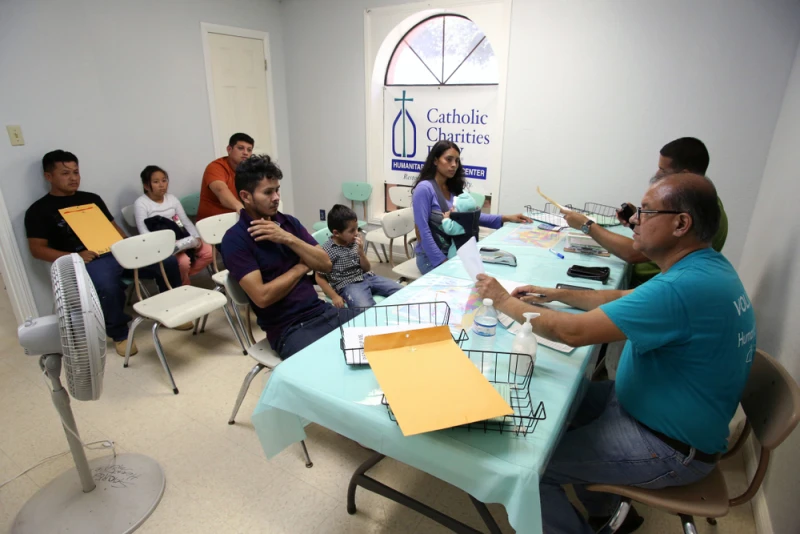 Volunteers at a Catholic Charities Humanitarian Respite Center help Central American refugees prepare to take a bus to go stay with U.S. family on Aug. 17, 2017, in McAllen, Texas. / Credit: Vic Hinterlang/Shutterstock
Volunteers at a Catholic Charities Humanitarian Respite Center help Central American refugees prepare to take a bus to go stay with U.S. family on Aug. 17, 2017, in McAllen, Texas. / Credit: Vic Hinterlang/Shutterstock Washington, D.C. Newsroom, Apr 10, 2025 / 12:25 pm (CNA).
The United States Conference of Catholic Bishops (USCCB) is starting to phase out programs that support migrants and refugees after it formally ended its federal government partnership on such services following funding cuts from President Donald Trump’s administration.
Bill Canny, the executive director of Migration and Refugee Services (MRS) at the USCCB, told EWTN News that although the bishops would “love to offset” the federal funding losses, they do not have the resources to do so.
“You can’t replace the generosity of the [United States] taxpayer and how they help either needy people overseas or needy people domestically,” Canny said. “You can’t replace that, in this case, some $ 200 million a year, which it would have been this year. So we can’t replace it with private [money].”
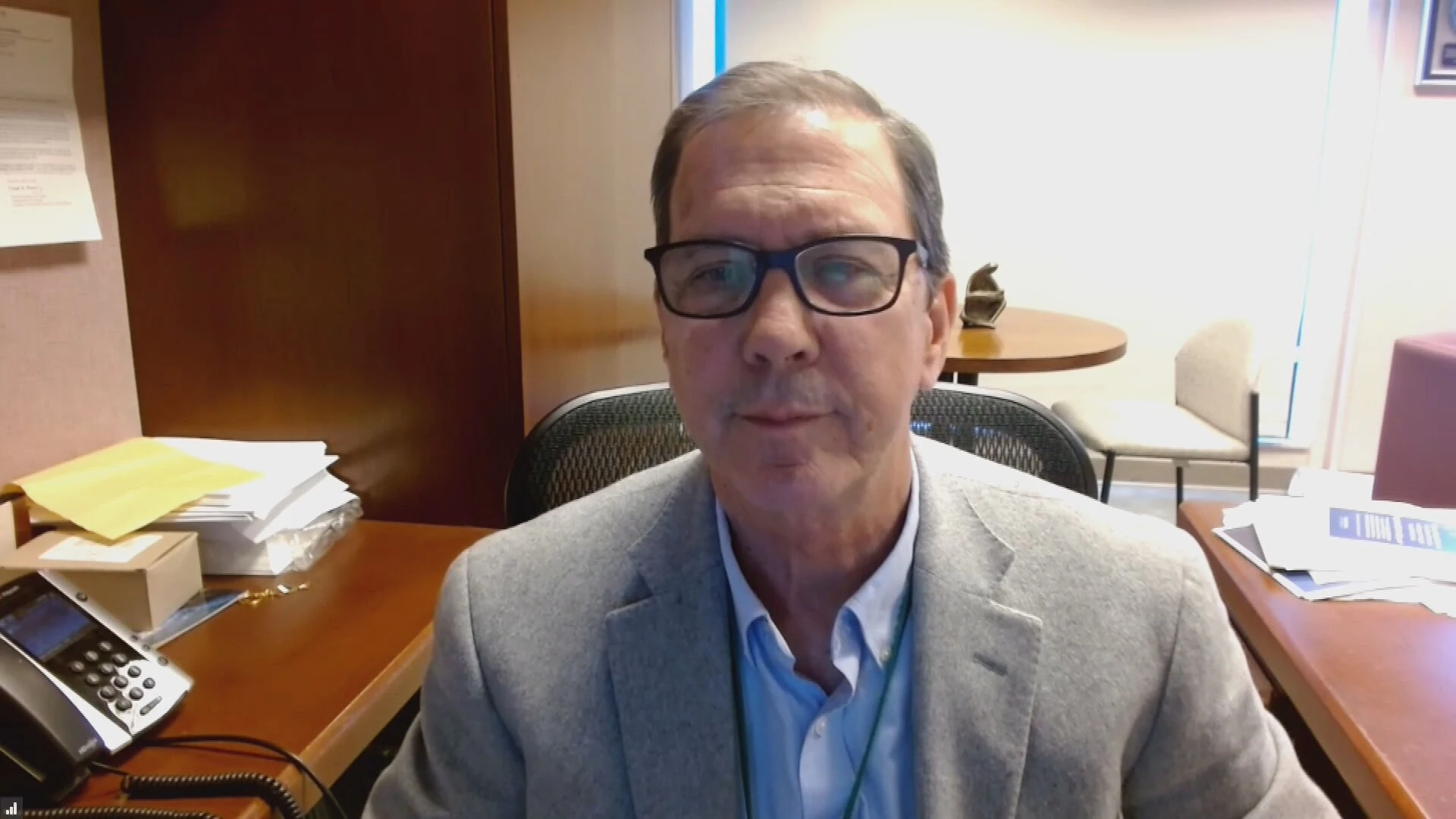
Earlier this week, the USCCB announced it would not renew its cooperative agreements with the federal government on migration and refugee services, which had been ongoing for nearly half of a century. This decision came three months after the Trump administration first froze federal funding for those programs.
“We are the national sort of consolidator for a number of these grants that go out to the Catholic network, the Catholic charities,” Canny said.
Former President Joe Biden’s administration provided the USCCB with more than $ 100 million annually, which the bishops allocated to affiliated Catholic nongovernmental organizations. In recent years, federal funding covered more than 95% of the bishops’ spending on the programs.
“We just sort of hit the end of our capacity to absorb the cost and to continue in this situation, which we feel is no longer a productive relationship,” Canny said. “… If we can’t do it correctly, we don’t want to do it.”
Canny noted that this administration has halted the entry of new refugees but that there are still refugees and asylum seekers in the United States who entered the country during Biden’s administration. He said the USCCB is “winding [the programs] down in a responsible way.”
According to Canny, the affiliated Catholic charities that provide the direct services will keep operating with the state and private funding they receive. In cases in which Catholic charities cannot provide long-term assistance needed for some migrants, he said, “we may be able to transfer to another agency that’s continuing the work,” adding: “Those other agencies are under the same difficulties we have, but … may have more private resources to put in.”
“Some of these programs have long time frames for helping refugees … [and] it’s been a true humanitarian program and it’s been a fantastic public-private partnership in this country,” Canny said.
The USCCB is also in the midst of an ongoing lawsuit with the Trump administration to secure funding for the costs that the bishops incurred while continuing to provide services for people they already took in. Canny said the USCCB has suggested a time frame “to extract ourselves from those agreements and where there are beneficiaries or clients to find either other partners or to finish … our obligations to those clients.”
“So we provided reasonable time frames to the government, and we are reasonably winding down the two grants that are currently suspended,” Canny added.
Although the partnership has ended, Canny also expressed some hope for “dialogue and reconciliation” with the Trump administration to reestablish the previous partnership.
“That’s certainly a foundation of our faith — dialoguing with others and learning one from the other,” he said. “So, you know, we always live with that hope that we can come to an understanding of how we could continue working together.”


